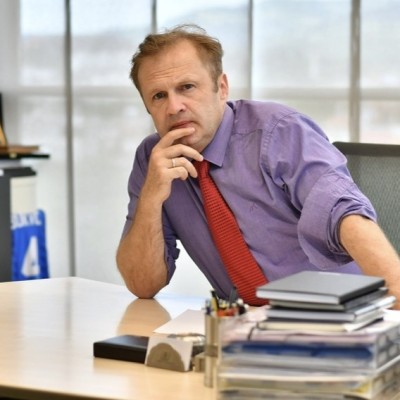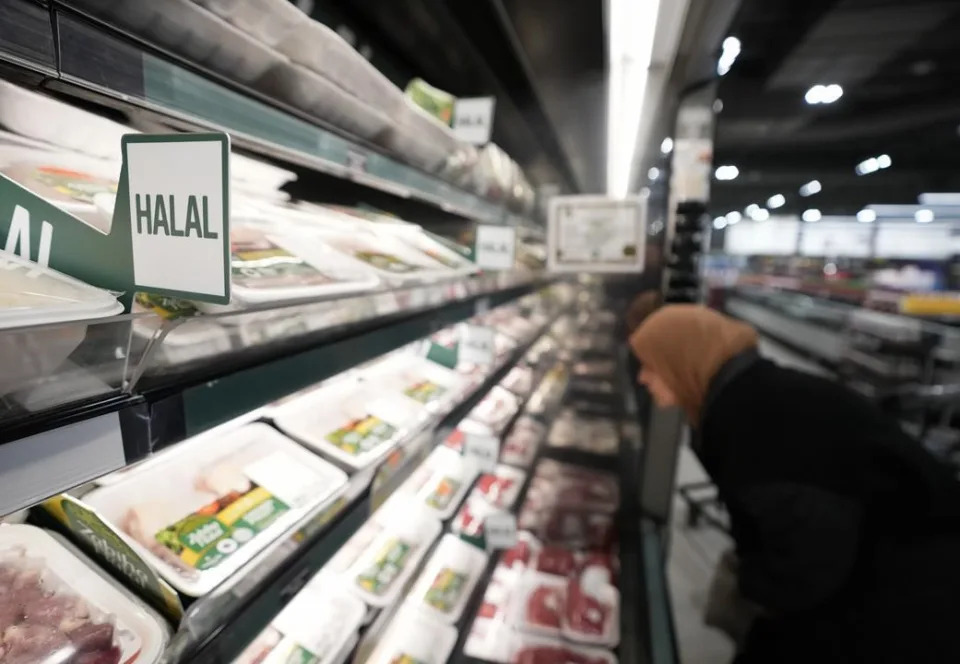Until recently, producers in Europe preferred to stay out of the halal business due to a certain bias in their minds; take former French President Nicolas Sarkozy’s comments on halal meat.
“Today, both businesses and society approach the issue with less suspicion than before, and our initial goal is to cater to the demands of Muslim consumers in European markets with the help of local producers,” Halal Club Managing Director Marc Deschamps told Today’s Zaman in Brussels last week. This is partly due to the lingering economic crisis in Europe that has made companies reposition themselves in markets before they suffer further losses, he said, adding halal markets can be seen as a way out of the crisis for the continent’s producers and retailers.
The same is valid for Belgium’s Walloon region, which had already been suffering from falling economic activity and unemployment since the closing of coalmines in the late ‘70s. The Halal Club brings together a number of companies with halal certification since the majority of customers in Europe are now requesting halal certificates on imported products as well as those domestically produced. A thorough philosophy of consumption, the halal concept covers sectors from food to cosmetics and logistics to leisure and banking.
The global halal food market alone is worth more than $6O0 billion, which represents approximately 15 percent of global trade in the food industry. Experts agree that it will represent around 20 percent of the global food trade by 2015.
According to Deschamps, the central position of the Walloon region in Europe brings them the opportunity to reach out to a large customer base on the continent. “We first expect to help our companies grow their businesses via exporting their products to such markets as Germany, France, the Netherlands and the UK, which are home to Europe’s largest Muslim population,” he explained.
More than 50 million Muslims — including Russia’s 27 million — live in Europe. Although relatively a small market compared to the estimated 1.5 billion global Muslim customers, Europe remains a serious market for halal suppliers due to the high purchasing power of its Muslim population, considering 6 million in France, 1.5 million in the UK and 3 million in Germany.
The small Walloon region’s halal producers produced and exported goods with an estimated value of 300 million euros last year. They are, however, not alone in this game and still have to brave challenges from similar companies in surrounding markets. Europe has an estimated halal food market size of $66 billion. Leading Turkish and other producers in Germany and France are the main suppliers to this market.
As far as certification is concerned, the lack of rules regulating halal certification and presence of companies who just offer certificates without any Islamic reference have been and currently are a major topic of discussion in Europe. These certifiers were criticized for lacking enough information about the requirements of halal certification. Some even called for establishing an umbrella halal supervision mechanism in Europe.
Deschamps said they work in close contact with some of the leading Muslim clerics across Europe, receiving consultations from them. As he acknowledges, halal is a sensitive issue for Muslims since it is a wide-ranging concept that embraces the entire life of a person, yet Deschamps still believes halal certification must be independent from any umbrella organization, and each country’s Muslim communities should define their own certifiers. “We could still establish a continental and global network of certifiers to exchange expertise and ideas. … Turkish authorities had some studies in this regard, and they could be the ones to pave the way,” he added.
For further information:
https://halalfocus.net/brunei-centre-for-halal-certification-in-region/



